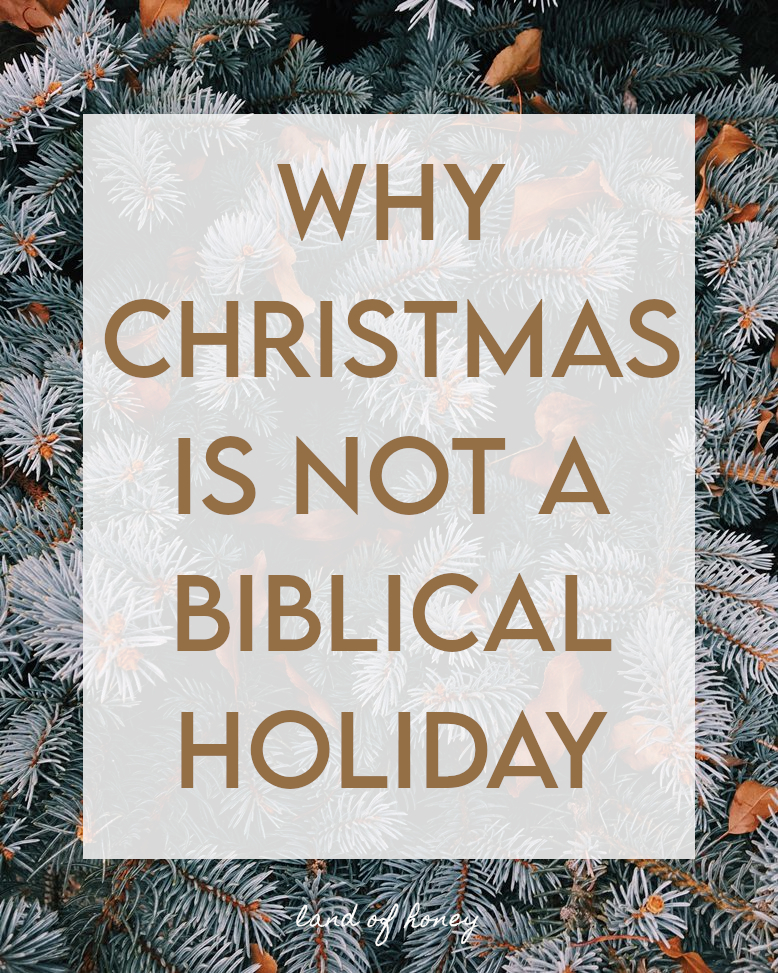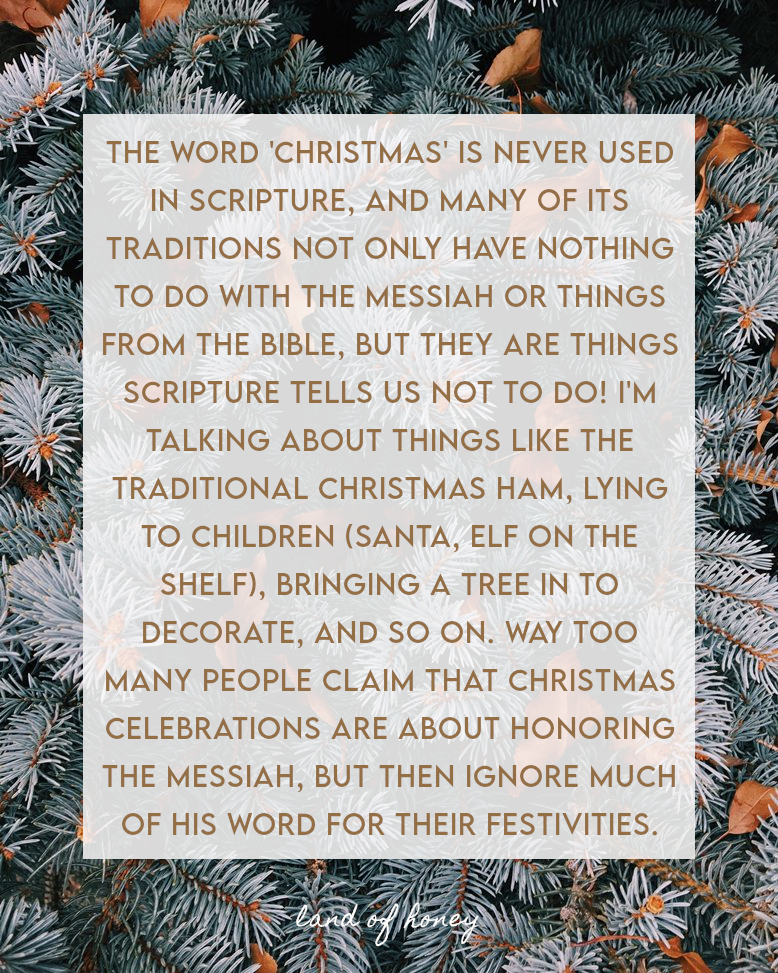"Christmas is a Biblical holiday because it's in the Bible!"
While many people intend to celebrate the Biblical events of the Messiah's birth when they celebrate Christmas, that does not make this cultural holiday Biblical.
Why isn't Christmas considered a Biblical holiday?
Biblical holidays are defined as holidays the Bible directs believers to keep or observe. These are the set apart times of Passover, Unleavened Bread, First Fruits, Shavuot, Trumpets, Yom Kippur, and the Feast of Tabernacles. The Living God himself directed believers to celebrate these and gave us information on when they happen and any special instructions for the festivities.
These are the only Biblical holidays, because they are the only holidays that the Creator tells us to celebrate. Learn more about them here.
"But Christmas is in the Bible!"
Many people celebrate the events of Luke 2 and the story of the Messiah's birth on Christmas. I understand the intentions of this are good. But coming up with our own holiday to commemorate Biblical events is not something Scripture ever tells us to do, and neither is celebrating birthdays. We never see the Disciples celebrating the Messiah's birthday, and nothing in Scripture suggests we should do this. There are no instructions for Christmas, and no commands from the Messiah or any writers of the Old or New Testaments about this holiday. In truth, Christmas has no more Biblical legitimacy than Dress-Like-Your-Favorite-Bible-Character Day during Vacation Bible School. A manmade celebration of a Biblical event simply should never be as highly esteemed as the holidays created by the Living God that Scripture tells us to celebrate.
It's important to know too that the word 'Christmas' is never used in Scripture, and that many of its traditions not only have nothing to do with the Messiah or things from the Bible, but they are things Scripture tells us not to do! I'm talking about things like the traditional Christmas ham, lying to children (Santa, Elf on the shelf), bringing a tree in to decorate, and so on. Way too many people claim that Christmas celebrations are about honoring the Messiah, but then ignore much of his word for their festivities.
Again, I know that most people who celebrate Christmas sincerely want to honor the Messiah. I know that's how I felt when I celebrated it. But good intentions don't mean that this is something the Creator tells us to do. Christmas is not considered a Biblical holiday, because the Bible does not direct us to celebrate the events or to partake in the cultural festivities of this time. It's your choice to take part in this or not, but please be aware that Christmas is not one of the seven holidays the Creator instructs us to keep.
Related posts:
Five Things Every Believer Should Know About Christmas
Are Christmas Trees in the Bible?
Why I Stopped Celebrating Christmas













